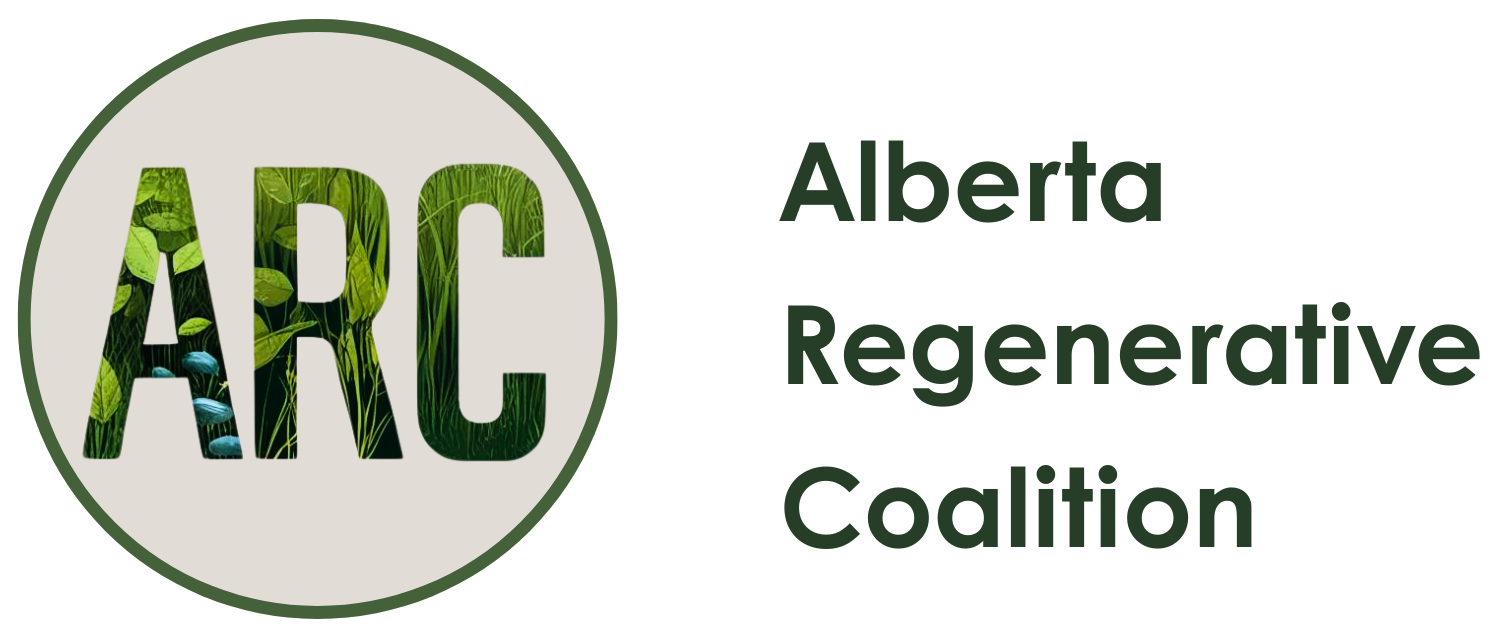Rain Garden
Rain gardens provide a regenerative solution to support pollinators and address water quality issues. By capturing and filtering stormwater runoff, rain gardens help reduce flooding and prevent water pollution, while providing habitats for pollinators and other wildlife.
Sustainable stormwater management garden
Zharee is one of the students in NAIT’s Regenerative Development course, and this rain garden prototype is her regenerative project. Inspired by the Manordale-Woodvale Community Centre Rain Garden, her design focuses on ecosystem restoration, pollinator support, and stormwater management through native plants and community involvement. The project reflects core regenerative development principles by strengthening the relationship between people, place, and nature for long-term ecological health.
Plant guild
Plant guilds are a key element of permaculture, designed to mimic the relationships found in natural ecosystems. By combining complementary plants that support one another, guilds enhance biodiversity, improve soil health, and attract pollinators—all while reducing the need for external inputs.
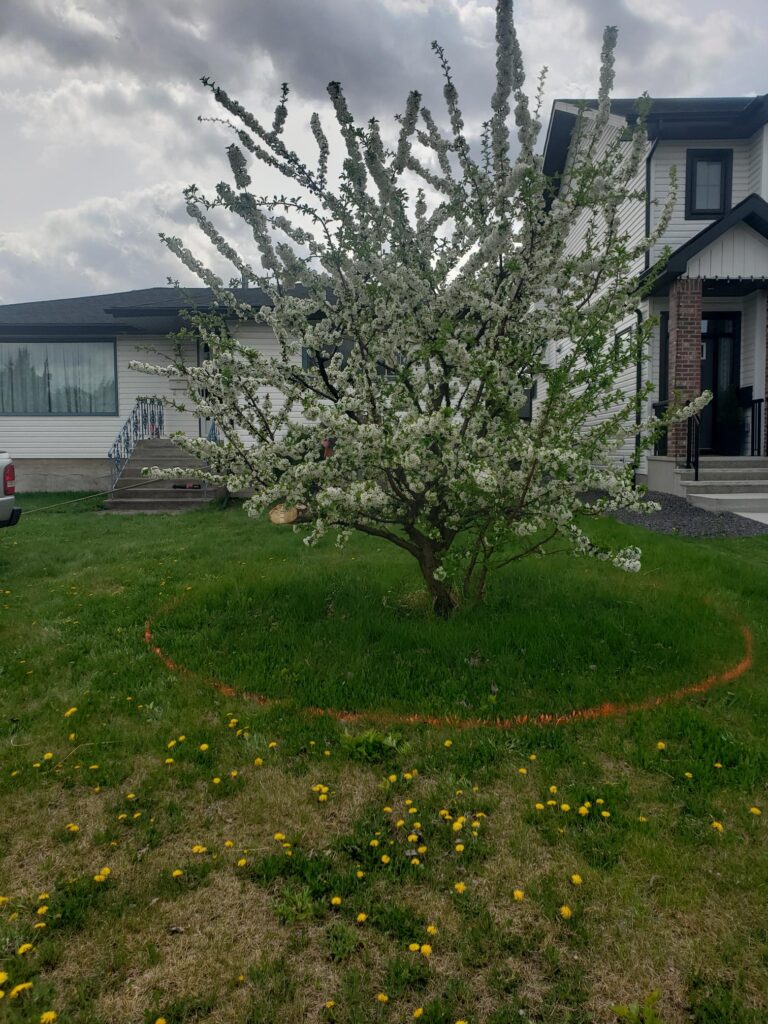
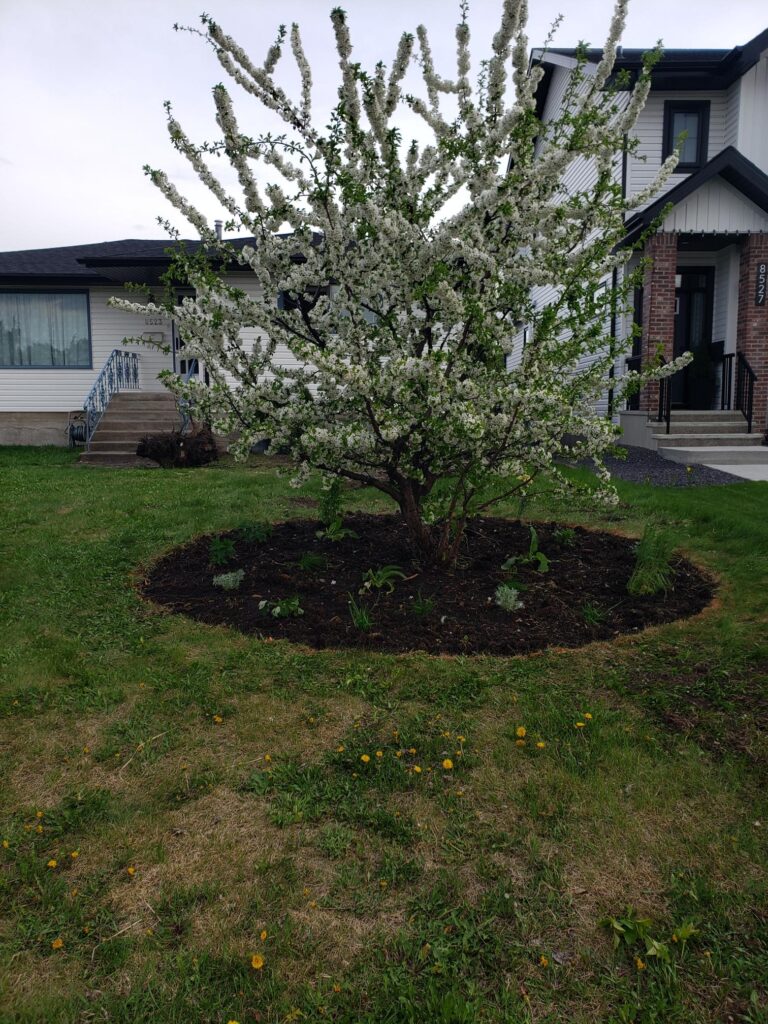
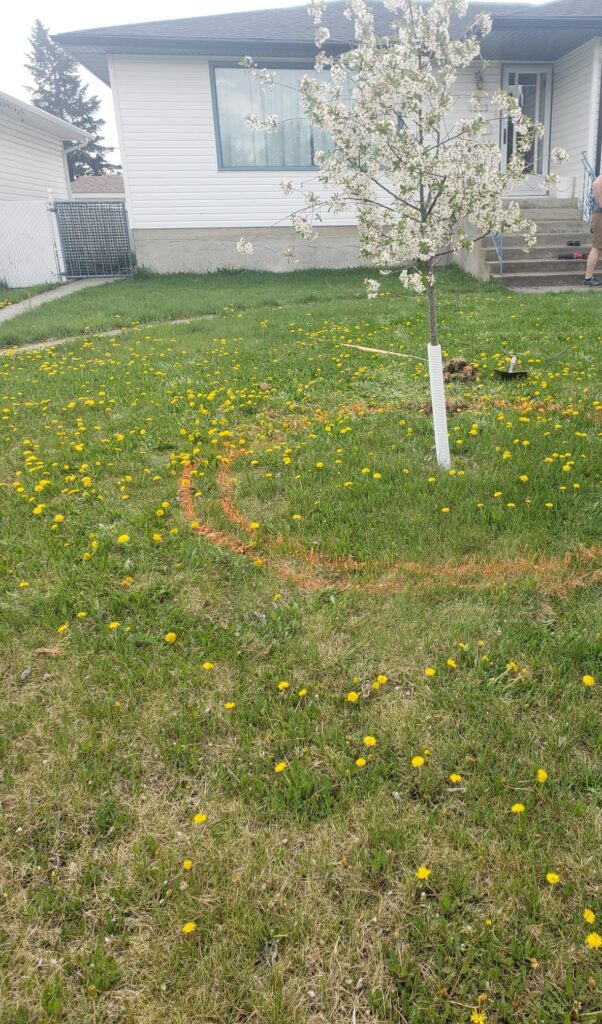
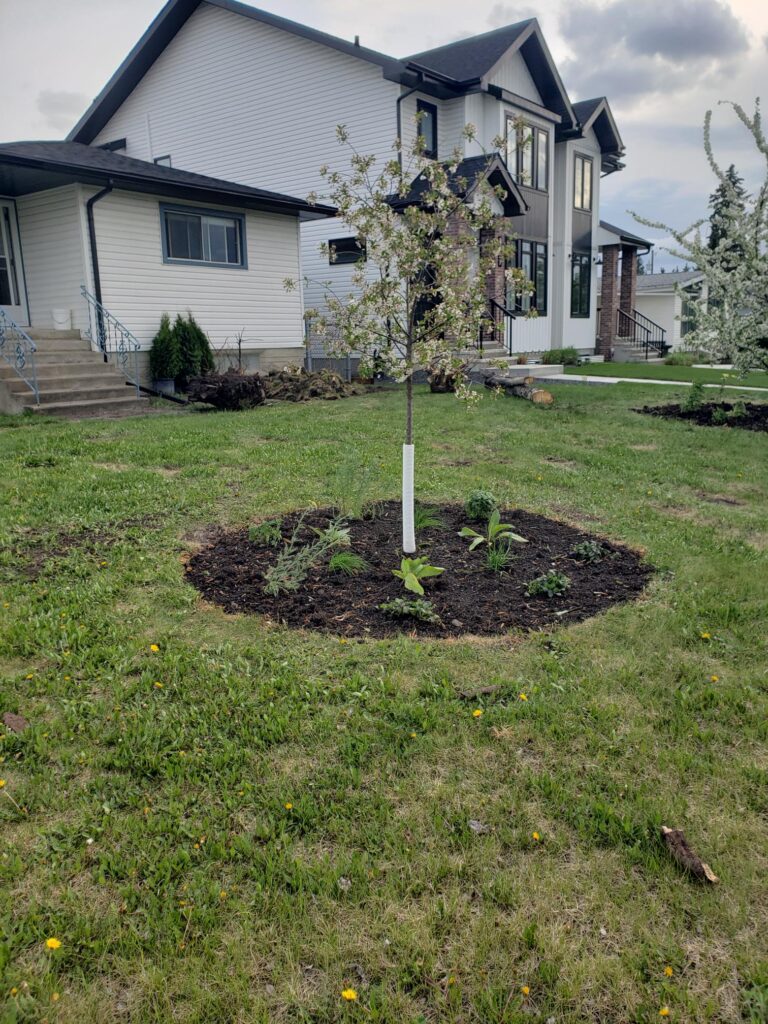
Designing a Regenerative Garden
Tiffany is one of the students in NAIT’s Regenerative Development and Design course, and this plant guild is the first phase of her regenerative front yard project. Created to better support cherry trees and local pollinators, the guild layers native and edible plants to form a resilient, self-sustaining system. The next step, planned for summer, is the installation of rain barrels for water catchment—part of a long-term vision to transform a conventional lawn into a thriving ecological space.
“As someone passionate about sustainability and community resilience, regenerative design starts at home. This project reflects my values—caring for the land, supporting local ecosystems, and creating beauty with purpose. I want to help shift how we see our yards: not just as private property, but as living systems that can give back..” ( Tiffany S)
